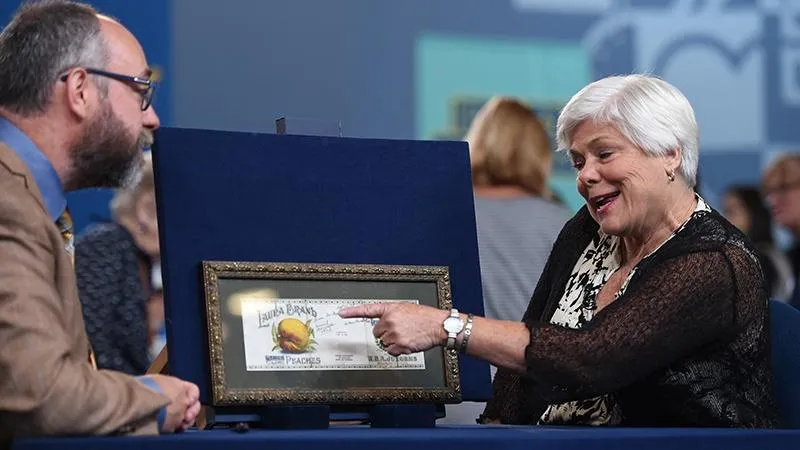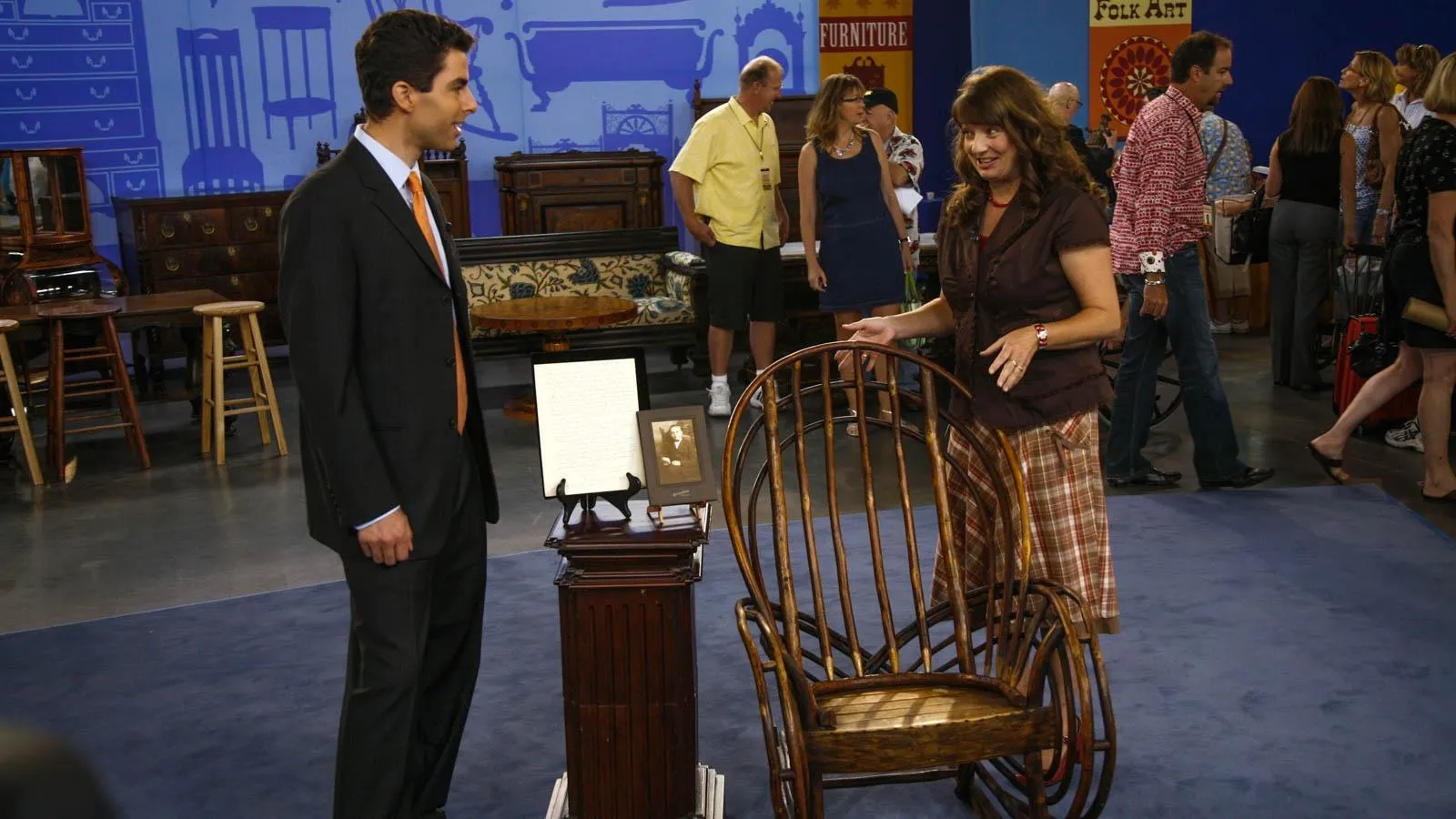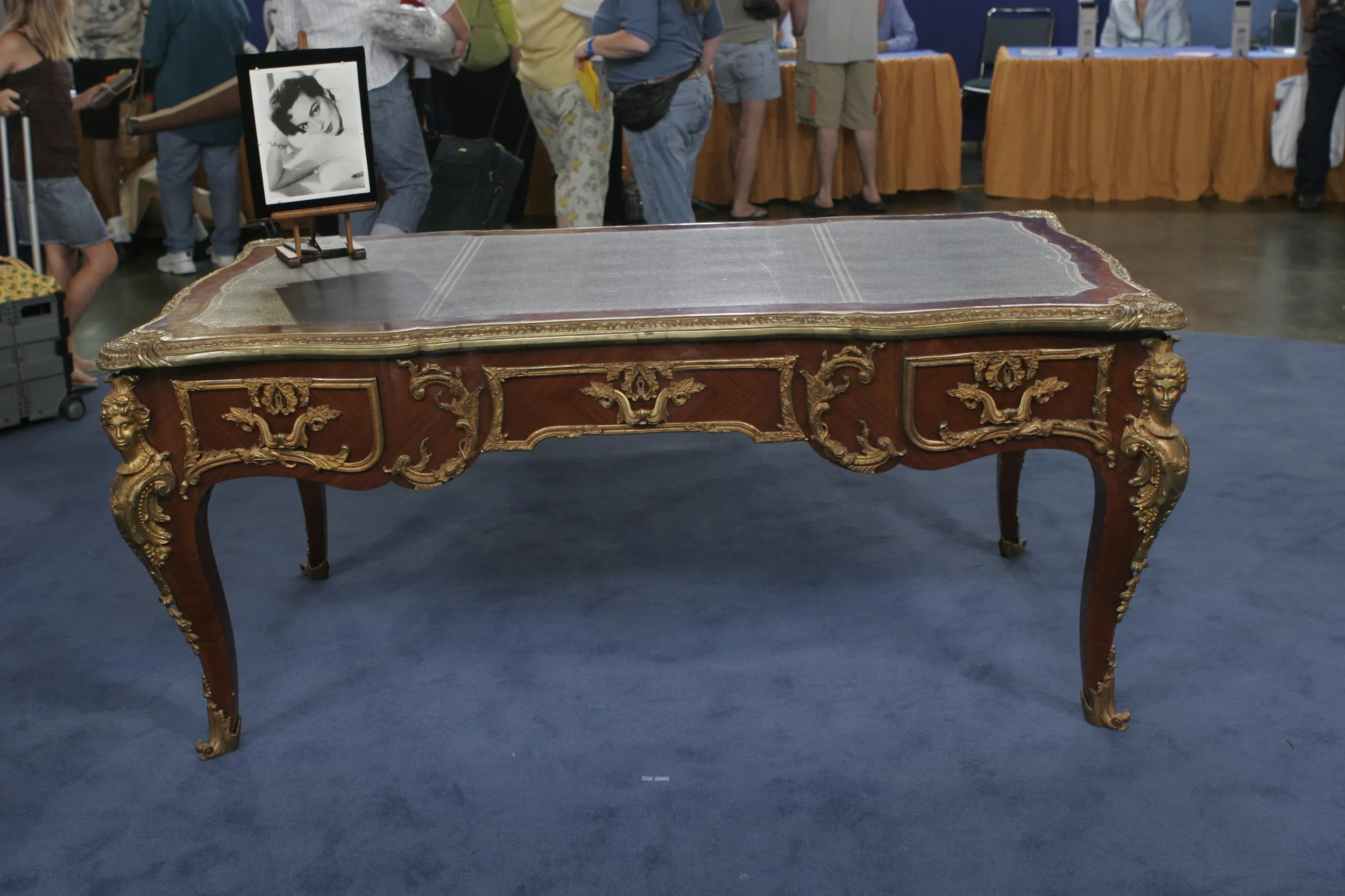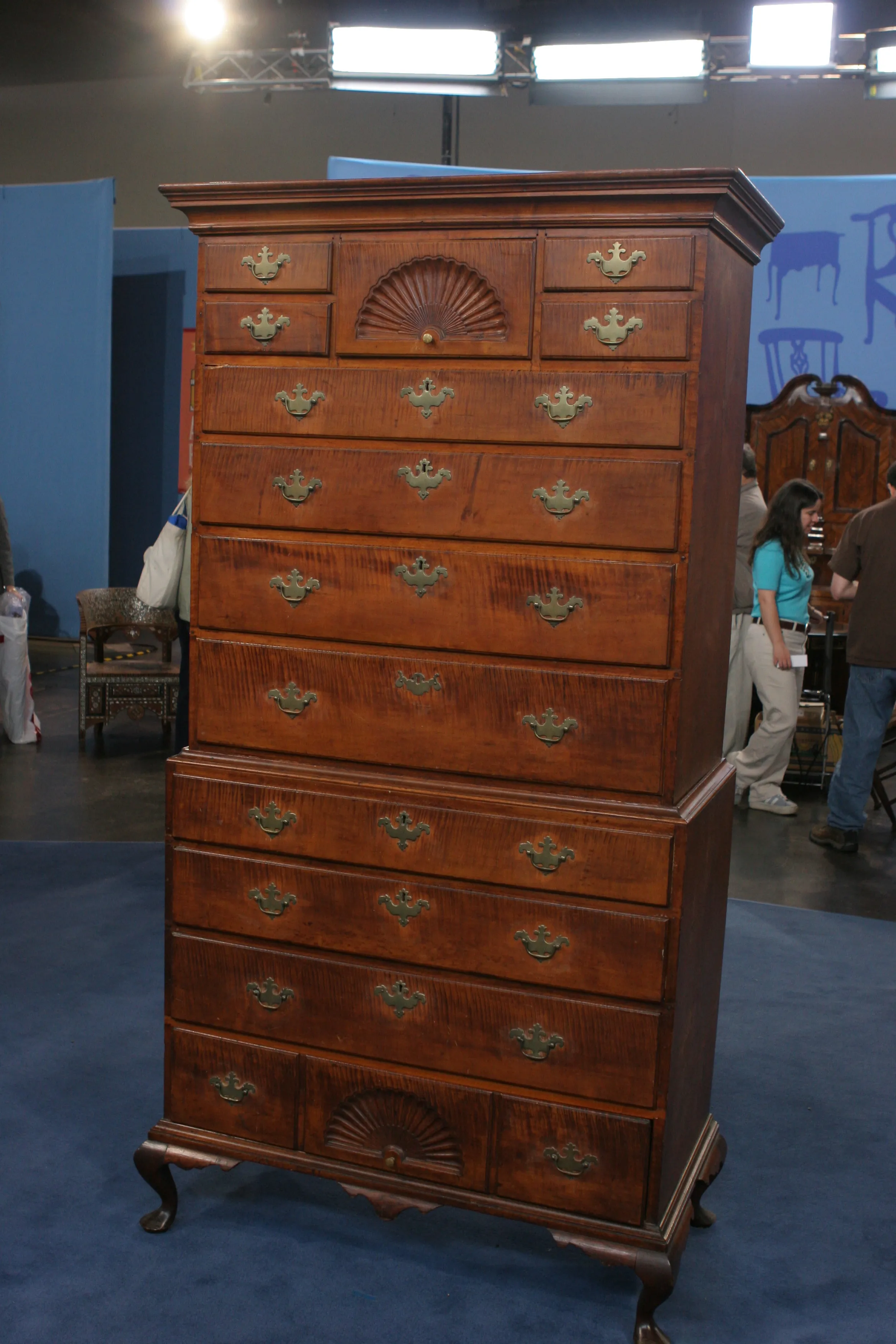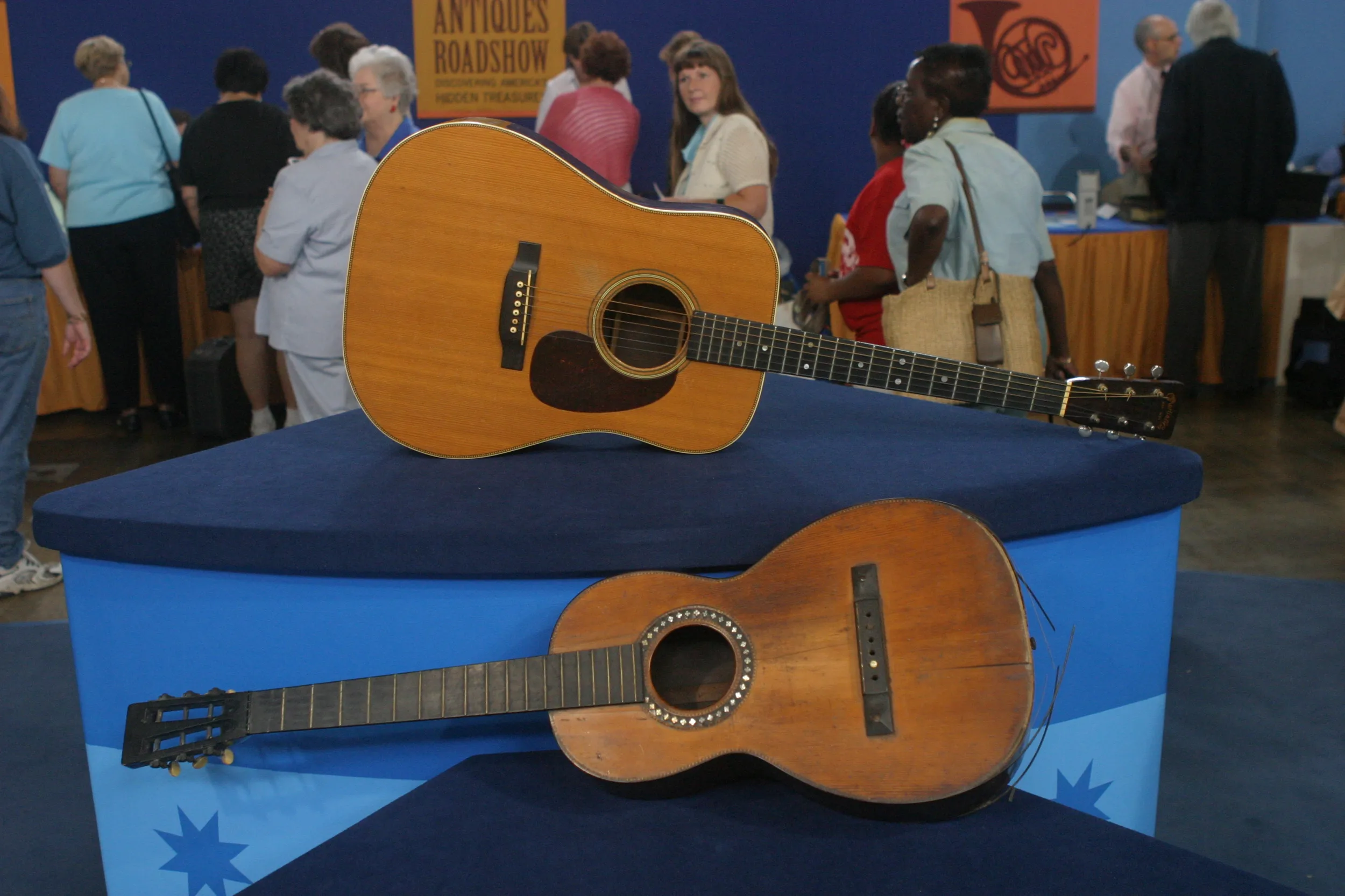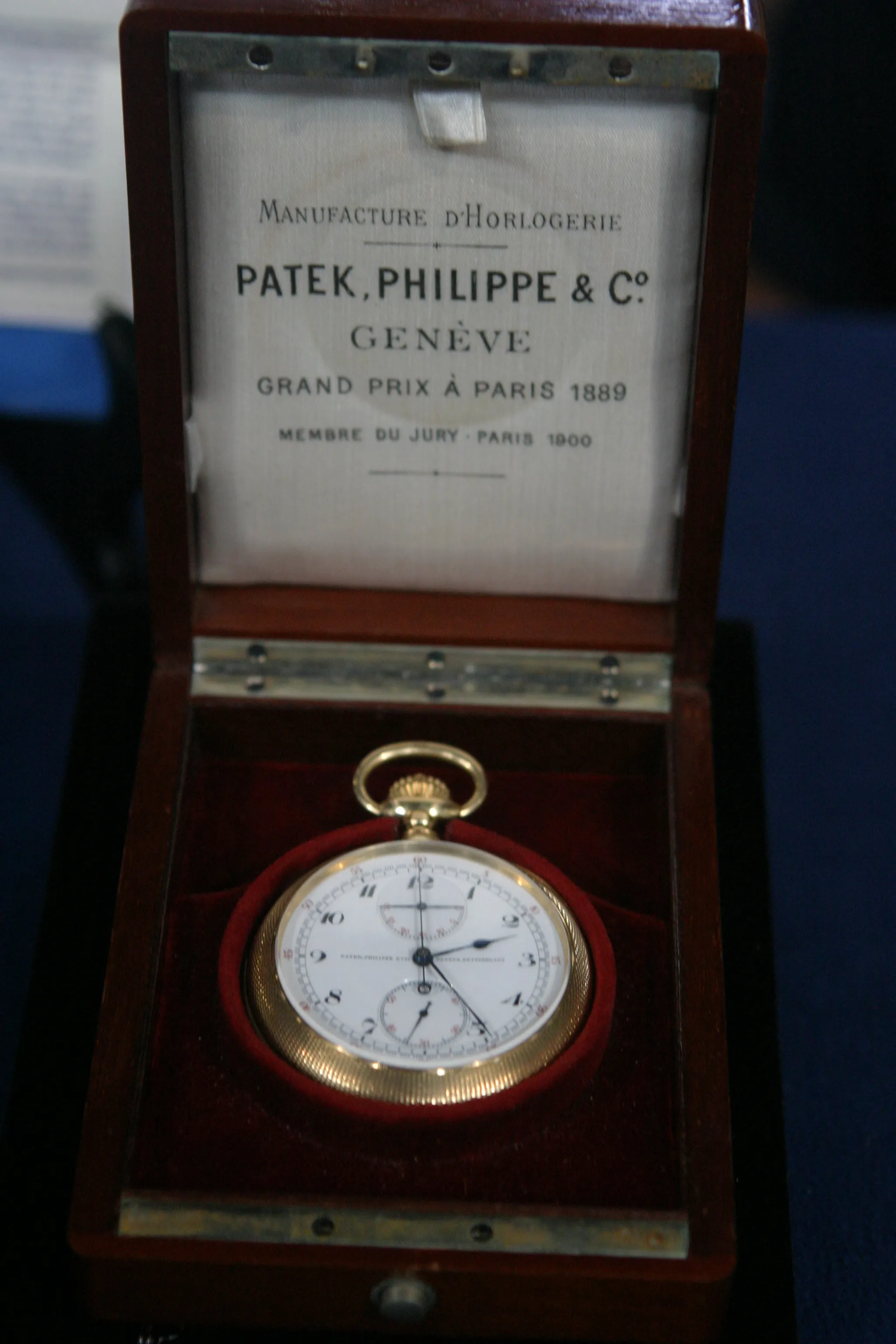GUEST: The story in the family is that it was made by my great-great-grandfather in Concord, Massachusetts, Cyrus Benjamin. It's been in the living room of my mother's house and my house for, for as long as I can remember.
APPRAISER: So family lore says it was made by Cyrus Benjamin.
GUEST: Cyrus Benjamin.
APPRAISER: About what time would that have been?
GUEST: It would probably have been, we thought, about 1860, 1870.
APPRAISER: Okay.
GUEST: About the time his son had gone into the Civil War and he had a shop in the back of the house.
APPRAISER: Okay, well, as sometimes can happen, family history is off by a generation or two here.
GUEST: (chuckles)
APPRAISER: A table like this is generally referred to as a demilune card table, made in Eastern Massachusetts about 1800. So 60 or 70 years earlier than family lore would suggest.
GUEST: And before Cyrus Benjamin was born.
APPRAISER: Exactly.
GUEST: (chuckles)
APPRAISER: This table, though it's based on a Boston example of a demilune table, is likely made, if not in Concord, certainly in the Concord, Massachusetts, area.
GUEST: That makes sense.
APPRAISER: Without a doubt. It'd be referred to as a Federal period card table. It relates to Federal furniture. It is a remarkably colloquial table.
GUEST: And what does that mean?
APPRAISER: Well, there's a lot of country cabinetmaker things that are going on.
GUEST: All right.
APPRAISER: Especially with relation to the inlay on this table.
GUEST: Oh.
APPRAISER: Which relates to a lot of Boston forms. At the top of the dies here, you can see what I would refer to as a contrasting quatrefoil, very similar to a lot of furniture made in Concord, certainly. What I like best, however, is the really delicate line inlay just below that, at the top of each leg. You can see this wavy line inlay that sort of intersects a couple times and then ends in drops. That's a great country example of a city form made with indigenous woods, like cherry on the top, and it excited us when we saw it because it's a good rarity to have a table made in that area of Massachusetts.
GUEST: Good to hear.
APPRAISER: In its current state, we'd estimate it, for auction purposes, at $3,000 to $5,000.
GUEST: (chuckles) That will shock my brothers and sisters.
APPRAISER: (chuckling) Well, good.
GUEST: Wonderful to hear.
APPRAISER: Yeah.
GUEST: I appreciate that, thank you very much.

